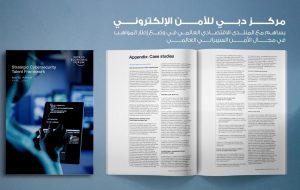The European Consumer Protection Center confirmed that users can counter cyber-attacks by following some important measures.
1 – Share as little personal data and information as possible, always considering the information you provide, and the sites that ask for it, which may be suspicious or fake.
2 – Avoid responding to or engaging with phishing or scam messages sent via SMS that use tricks like urgency, and threats of account suspension to get users to enter sensitive information like contact details, banking information, and login passes on fake websites.
3 – Manually type in the alleged internet address instead of clicking on links sent in suspicious or fake emails, then check if customer account information is present, also call the alleged sender if a known phone number is available to verify the emailed message.
4- Ignore messages or links that involve urgent requests for financial assistance on social media. This usually involves a pitiful story or a sad tale, as it is likely a hacked friend’s account, thus you should contact the friend through other means.
5 – Never post copies or images of ID documents online, and if necessary, hide all irrelevant unneeded information like ID number or signature, also add a watermark if possible, meaning using a free program like Gimp to add a text strip atop the document stating purpose, recipient and date, noting it is only a copy.
6 – Use a strong, complex password for every online account or service, and in that case, use a password manager. Also, enable two-factor authentication (2FA) if available.
7 – Regularly update operating systems, software and apps, and download updates immediately to close security risks that may enable cyber-attacks.
Act quickly whenever you detect any identity data misuse from suspicious activity on an online account, reporting it to the relevant police and notifying the bank to stop dealings with this account or credit card.













